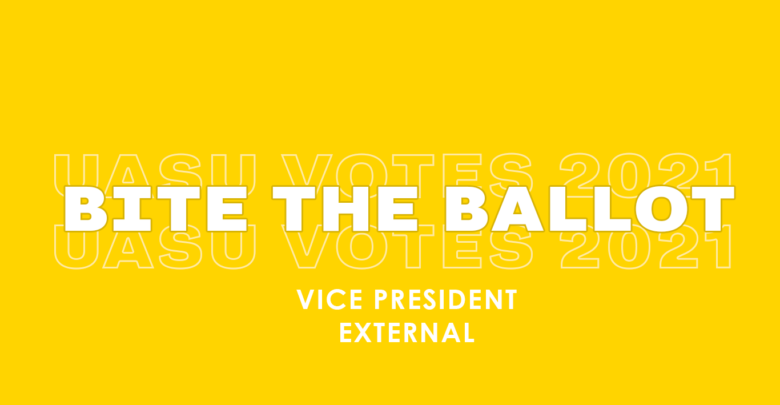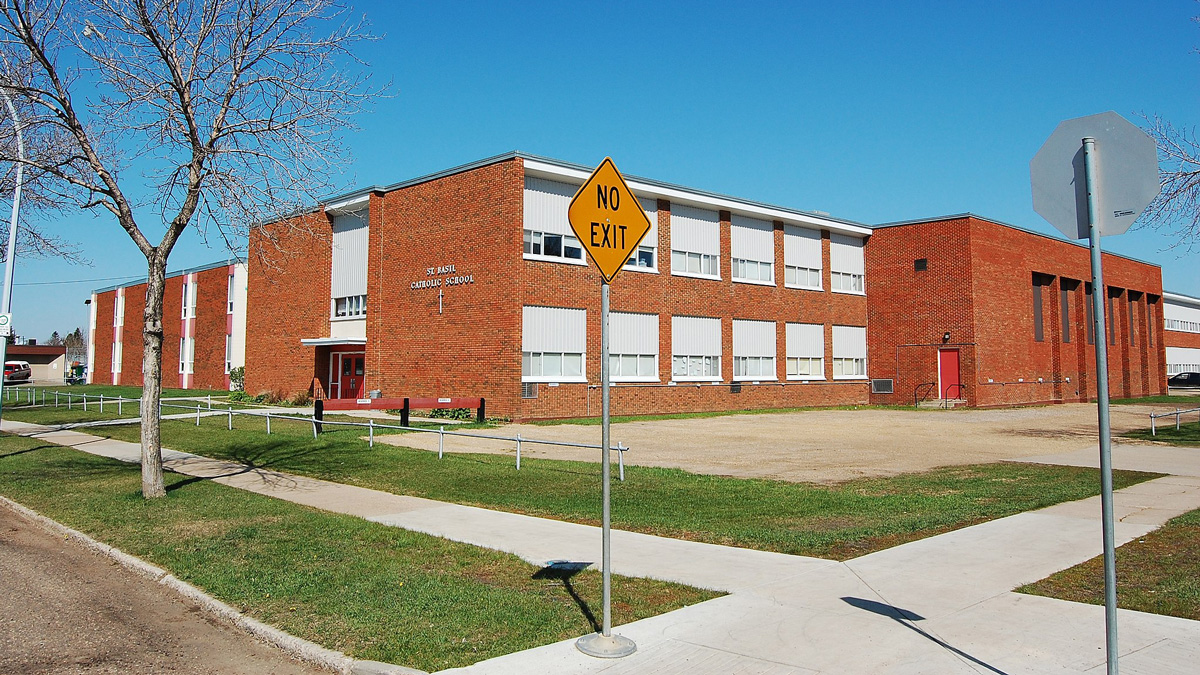Bite the Ballot: Vice-President (External)
How should the student body vote, and how will they?
 Pia Co
Pia CoWith an uncontested race this year, the position of vice-president (external) (VPX) hasn’t been a battle of ideals, but that doesn’t mean there’s nothing to look at in this race.
Christian Fotang
Christian Fotang, a third-year biology major and representative on the Students’ and General Faculties Council (GFC), has built his platform on advocacy for students. Specific areas of focus include affordable education, mental health, student resources, and performance-based funding reform.
With Fotang’s platform prioritizing the need for financial aid for struggling students, he promises to push the Government of Alberta on issues such as advocating for pandemic-specific grants. Another goal for Fotang is advocating for a temporary pause or elimination of provincial student loan interest rates.
To his credit, Fotang’s platform also promises to push for affordability issues that students were concerned about before the pandemic. The biggest standout here is his promise to fight for an increase to the current grants offered by the Government of Alberta for full time students and students with dependents.
He also plans to lobby for decreasing the income cut-offs for grant eligibility, which is currently as low as an income of $63,381 a year for a family of one to receive any grant funding at all. Fotang would also like to push for an amendment for future up-front grants to be based on the income of the student, not the household or family.
With the 2021 provincial government’s budget giving the University of Alberta higher cuts than expected, now more than ever students need the Students’ Union to be their voice to the harsh changes to tuition and funding for campus resources and financial aid. But Fotang’s platform goals feel lofty in the face of the newest cuts to post-secondary education, the continued freeze on provincial financial aid funding, and an unyielding provincial government even during the pandemic.
As well, Fotang’s plans for advocacy aren’t explained much past his continued promises to advocate against cuts and for funding. His reply during the Myer Horowitz forum to a question over what advocacy he’d do beyond contining the snow penguin and the Stop the Cuts to PSE movement emphasized his lack of plans.
The response was an acknowledgement of the previous campaigns and that he’d be continuing to accomplish those same goals, but didn’t elaborate on his own ideas for a new plan, stating that there’s an element of surprise involved. With his platform equally vague on what advocacy steps he’d take outside of ones the SU is currently involved in, I found myself quite disappointed in his unsatisfactory answer.
Fotang’s platform also wants to advocate for more mental health support and staff on campus, but he doesn’t mention much beyond the idea of advocacy to the government yet again. He wants to work with organizations off-campus for mental health resources beyond pushing the government for funding, but had no names in mind of which ones when asked.
However, Fotang shines on his strong feelings towards communication and outreach within the student movement. His platform commits to working alongside the Edmonton Student Alliance (ESA), Council of Alberta University Students (CAUS) and the Canadian Alliance of Student Associations (CASA), all organizations that bring university students’ union members together from varying places to advocate for change. Fotang plans to represent our SU here and bring a voice to multiple issues facing all students, like achieving affordable tuition and addressing campus sexual violence, among other things.
His promise to support the engagement of student groups through town halls are beneficial to students, as we’ve heard from other candidates this year that student engagement with the SU is something that needs to be worked on.
The VPX is meant to represent the needs of students, and Fotang certainly plans to give a voice to as many as he can. I have no doubt that if elected, Fotang would do all he could to represent the many student groups and needs on our campus.
Who will win, and who should win?
I think Fotang will win, because his platform addresses issues many students are concerned about, such as tuition and financial aid. His passion for engagement with both the students on campus and the many student groups across Alberta also shows real commitment, especially when combined with his previous work in student government positions.
Ultimately, I believe none of the above is the best choice in this case though because, as it is, Fotang doesn’t bring anything to the table that hasn’t been fought for by the last vice-president (external).
When considering all sides of Fotang’s platform, I find that his plans lack a lot of detail to them. His ideas don’t go much farther than advocacy, which students have been doing since the first budget cut to the university. As well, Fotang makes a lot of promises about reaching out to student union organizations across Alberta, but this isn’t something another candidate couldn’t do in his position.
His platform promises, while admirable, are many things that one term in the position isn’t going to get him far on, and I think students deserve a VPX that has a solid “Plan B” in mind beyond stating advocacy as his goal.
Leaving the position of VPX open for a period of time would give the elected SU some time to reconsider goals with the recent provincial budget’s release, and the best ways to approach the matter. If he wishes to run again, this would also allow Fotang some time to reconsider his platform goals and bring a stronger plan to deal with the issues he wants to fight for. It might even encourage other students to give him some competition when it comes time to decide on a VPX in the future.
The Gateway as an apolitical organization does not endorse candidates. Authors who write “Bite the Ballot” pieces follow the races or referendums that they write about with the expectation they attend or watch every forum and read all relevant campaign materials in their entirety. The views expressed in this piece reflect the author’s best informed judgment.




